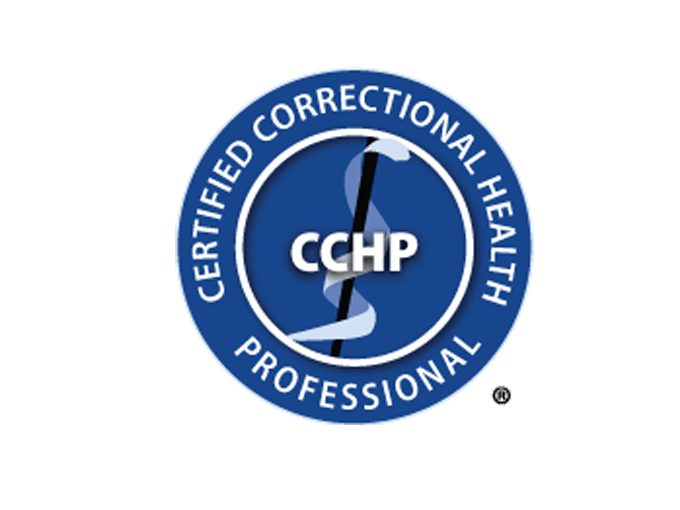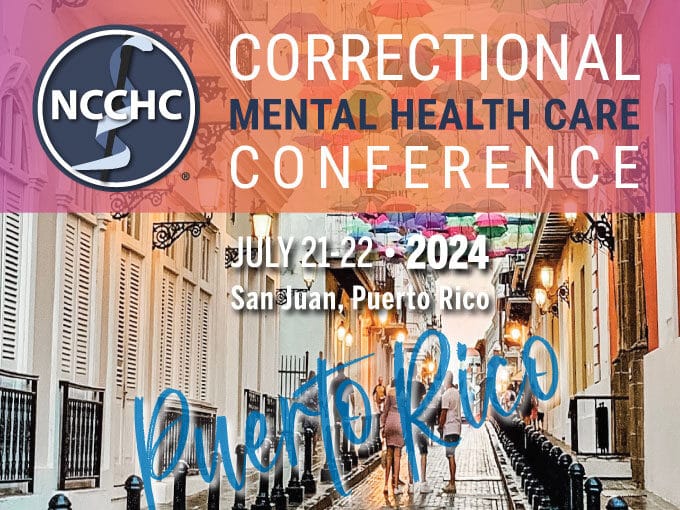
Standards Q&A: 75% Custody Health Training Requirement
Does the 75% requirement refer to all custody staff or only those working during
Home The Aftermath of COVID: “Trauma-informed” Work
 Dec 12, 2023
Dec 12, 2023In our most recent issue of the Journal of Correctional Health Care, we include an excellent article by Benjamin Leach and colleagues regarding stress and anxiety among health care professionals (HCPs) in a state correctional system during the COVID-19 pandemic. Even though prisons were an epicenter of the COVID-19 pandemic in the United States, only three previously published studies have described mental health issues experienced by correctional HCPs during the pandemic. All three of these surveys showed high rates of anxiety. In a 2022 study by M. Haroon Burhanullah et al., correctional HCPs showed high rates of symptoms of depression (48%), burnout (47%), and post-traumatic stress disorder (50%).
The Leach et al. study is unique not only in its state-level approach but also in its investigation of specific causes of and practical remedies for stress and anxiety among correctional health professionals both at work and at home and after vaccinations became available. Compared to before the pandemic, survey respondents reported increased job stress, exhaustion, burnout, and cynical feelings toward work. The highest reported workplace stresses were related to staffing, changes in work behaviors, and the well-being of coworkers diagnosed with COVID-19. Notably, respondents ranked the following as the highest priorities for improving COVID-19-related stress in the work environment: clearer communication about changes in protocols, rapid turnaround (<6 hours) testing, and enhanced availability of personal protective equipment.
A range of themes for operational improvements emerged from responses to open-ended items, including clearer communication with headquarters/executive leadership; greater validation, support, and attention to safety by administration; increased information about HCP actions that may be punished by administration and/or brought to court by residents for poor COVID-19-related outcomes; increased staffing and reduced or more reasonable hours; reduced interfacility patient transfers; and increased recognition of significant impact of work during COVID-19 on personal and home life. Contextualizing their results within previous studies, Leach et al. recommend that correctional systems invest in adequate planning and training for future pandemics or other emergency conditions and in preparing to provide a greater level of support to their HCPs.
As I contemplated the results from these studies (Burhanullah et al., 2022; Guardiano et al., 2022; Leach et al., 2024; Tomkus & Matthews, 2023), I could not help but feel sadness and compassion for the lived experiences of respondents and the thousands of correctional HCPs that they represent. I could not help but lament the pandemic experiences of the HCPs with whom I work—the exhausted nurse who spent hour upon hour at a dying patient’s bedside, the fearful provider nearing retirement, the young practice manager who suddenly lost her husband. And, after some time, I found myself feeling frustrated and disappointed by the general lack of mental health support, wellness programming, and employee assistance available for correctional HCPs before, during, and after crises and long-term stressors.
If we are to understand and support correctional HCPs, we must begin to think more critically and act more comprehensively. Specifically, I think we need to consider the traumatic impact of critical incidents and chronic stressors on correctional HCPs through the lens of what is known about post-traumatic stress disorder and its close siblings: burnout, secondary traumatic stress, vicarious trauma, compassion fatigue, and moral injury. Not only for our patients but also for ourselves, we must consider what “trauma-informed” care means and what a “trauma-informed” work environment might look and feel like.
In numerous publications, the Substance Abuse and Mental Health Services Administration provides timely and thorough guidance regarding assumptions, principles, and implementation domains of a trauma-informed approach in various contexts. In brief, SAMHSA describes how a trauma-informed “program, organization, or system … realizes the widespread impact of trauma and understands potential paths for recovery; recognizes the signs and symptoms of trauma in clients, families, staff, and others involved with the system; and responds by fully integrating knowledge about trauma into policies, procedures, and practices, and seeks to actively resist re-traumatization.”
In practical terms, some key elements of a trauma-informed work environment would likely include organization-wide education regarding the range of emotional, behavioral, physical, developmental, cognitive, interpersonal, and spiritual symptoms associated with/resulting from individual, collective, cultural, and historical traumas; trauma screening and assessment, both post-event and on a regular basis; access to treatment services that are trauma-specific, evidence-based, and culturally appropriate; and organizational policies and practices that promote and support safety, trustworthiness, transparency, peer support, collaboration, mutuality, empowerment, voice, choice, and possibilities for post-traumatic growth at all levels.
In the aftermath of the COVID 19 pandemic and the anticipation of future variants, whether you are a health care provider, researcher, or administrator, I hope you will join me in reflecting on what trauma and trauma-informed approaches look like in correctional health care systems. I hope you will consider what post-traumatic growth could look like in correctional HCPs and correctional health care systems.
Toward healing the wounded healers, we are all in this together.
AJ Harzke, DrPH, MDiv
Editor-in-Chief, Journal of Correctional Health Care
This post is taken from the editor’s letter in the latest issue of the Journal of Correctional Health Care, NCCHC’s official Journal. For information on publishing, advertising, or subscribing to the Journal, visit https://home.liebertpub.com/publications/journal-of-correctional-health-care/664/overview.


